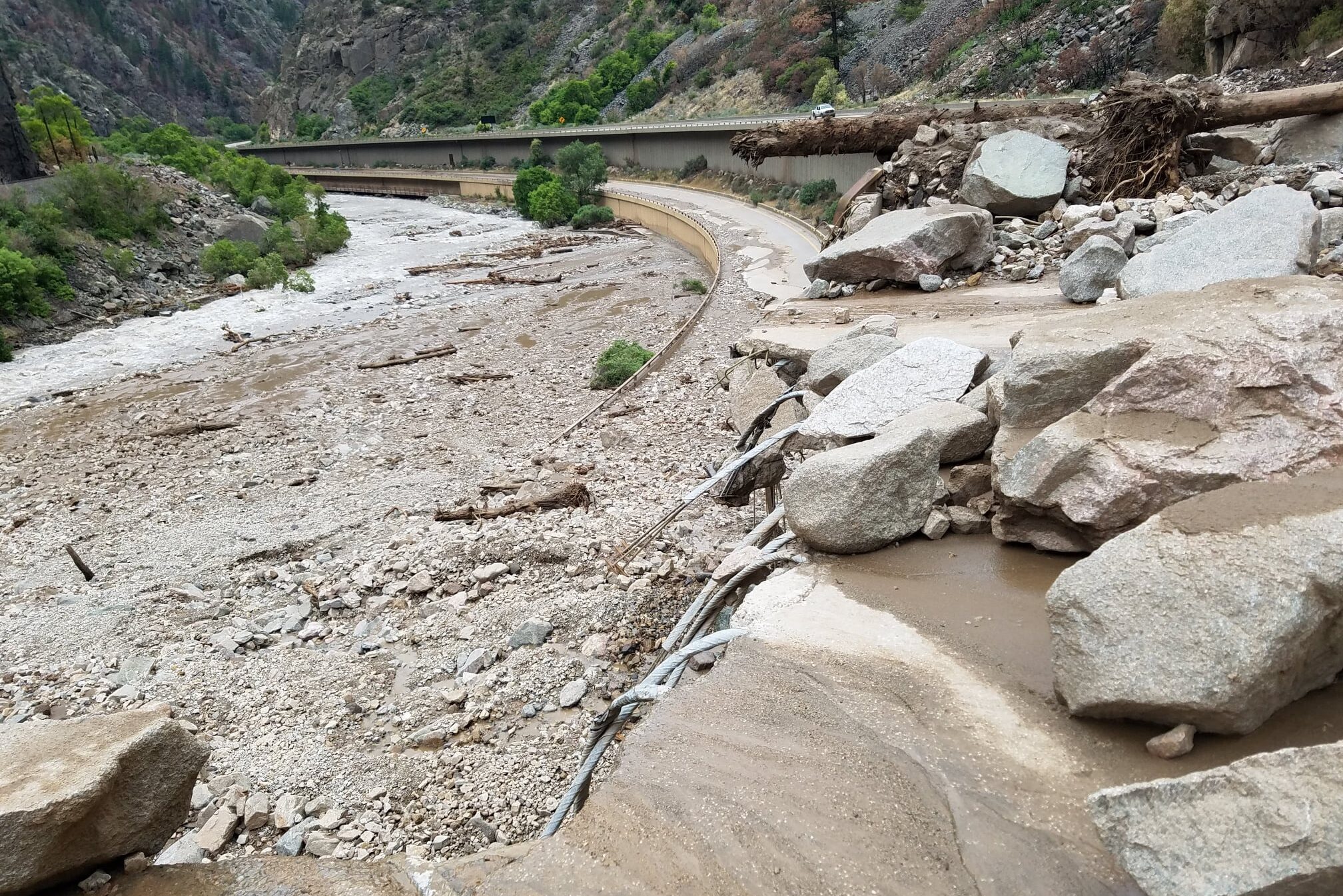
The state of Colorado is asking the federal government for $116 million to fund repairs to Interstate 70 through Glenwood Canyon and improvements to alternative routes like Cottonwood Pass.
Gov. Jared Polis and state Department of Transportation Executive Director Shoshana Lew made the request in a letter to federal officials on Sunday, more than a week after mudslides closed the highway, trapping motorists and disrupting travel across the state.
“While Coloradans understand the magnitude of destruction, the disruption to people’s lives and livelihoods grows as the interstate remains closed,” Polis and Lew wrote. “Federal support, including quick release of funds, will greatly assist our efforts to restore functionality to the interstate and allow people to have the connectivity they rely on.”
The state requested that 10 percent of the federal funds be granted immediately. It also provided this breakdown of its cost estimate, which it says should firm up in the next eight to 10 weeks.
- Debris removal costs (includes maintenance staff costs) = $4 million
- Impacts to existing State Highway alternate routes (as a result of I-70 closure) costs = $10 million
- Supplemental traffic control services (contractor) costs = $1 million
- Visible damage estimates caused by event damage or debris removal hauling costs = $20 million
- Assumed damage repair estimates (non-visible) costs = $20 million
- Potential geohazard mitigation at several locations = $5 million
- Construction Management and Construction Engineering costs = $5 million
- Future Resiliency & Redundancy Study costs = $50 million
- CDOT administration (non-maintenance staff) costs = $1 million
Clear weather over the weekend allowed CDOT crews to haul 440 loads of debris — each carrying 13 tons of mud, rocks and other material — out of the canyon. That work will allow engineers to better inspect damage to the road, a CDOT press release Monday morning said. There’s still no announced date for the road’s reopening.
The lion’s share of the state’s request would pay for the study of alternative routes, like Cottonwood Pass to the south of Glenwood Canyon, and how to make I-70 more resilient to extreme weather events made worse by the changing climate.
During the design and construction of I-70 through Glenwood Canyon in the 1980s and early 1990s, CDOT performed “exhaustive geologic reconnaissance” in the canyon that revealed some “soft oozing mudflow events,” said retired CDOT Glenwood Canyon project manager Ralph Trapani.
The design accounted for those, Trapani told Colorado Matters host Ryan Warner. But nothing at the time indicated there’d be large rocks and boulders tumbling down the canyon’s drainages, as happened last month.
“We didn't see anything like what we're seeing right now,” Trapani said.
“It's kind of like smoking cigarettes,” he added. “We didn't know about climate change back then.”
One design for I-70 would have elevated more of the road on a viaduct through the canyon, Trapani said, but that was thrown out because a citizens’ committee wanted to keep the road close to the river.
“I believe we came up with the best solution,” Trapani said. “The challenge we've got now is somehow modifying that solution to respond to climate change and get some resiliency into that corridor.”
In the meantime, travelers are finding new ways to get where they need to be. Amtrak spokesman Marc Magliari said the California Zephyr train, which runs through the canyon, restarted service on Friday.
And about 20 members of the Colorado National Guard are now helping with traffic management along sometimes-dangerous alternative routes, National Guard officials said in a statement.








